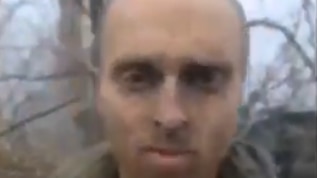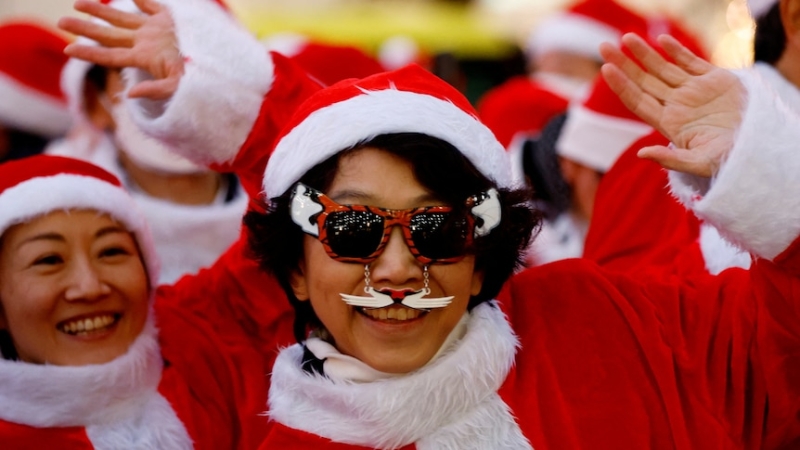The video shows a man who identifies himself as Oscar Jenkins being questioned by Russian forces. (Supplied: Telegram)
This week, a hostage video emerged of captured soldier and Australian man Oscar Jenkins being detained and interrogated by Russian forces in eastern Ukraine.
While diplomats say they are still working to confirm the 32-year-old's location and conditions, the ABC learnt that the Department of Foreign Affairs and Trade (DFAT) was alerted to concerns regarding his whereabouts last month.
Captured Australian 'missing' for months in Ukraine
Photo shows A screenshot of a video showing a man with mud on his face.
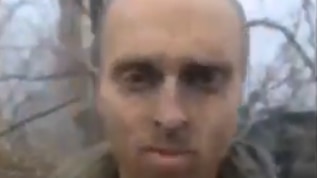
Ukraine has been enlisting foreign volunteers into its international allegiance since Russia's full-scale invasion began in 2022.
At least seven Australians are believed to have died fighting in Ukraine since, but Mr Jenkins is believed to be the first Australian soldier to be captured and held as a prisoner of war.
So, what happens now? And what legal protection do people who joined Ukraine's forces have if they are captured by Russia?
What are the conditions of a POW kept in Russia?
Speaking to ABC's RN Breakfast on Tuesday, Shadow Foreign Affairs Minister Simon Birmingham said Russia should be treating all prisoners, including Mr Jenkins, "humanely and fairly, with respect and in accordance with the laws of war".
And while he said it was up to Russia to "live up to those standards", he acknowledged "far too many reports" have been seen of Russia failing to do so.
Mr Jenkins identified himself as a former teacher in a video posted by pro-Kremlin social media accounts on Sunday that shows a man with dirt across his face being interrogated and struck on the head by Russian captors.
The ABC also verified Mr Jenkins's identity independently.
Keir Giles, Russian military expert and senior consulting fellow of the Russia and Eurasia Programme at Chatham House told RN Breakfast Mr Birmingham's expectations are "extraordinarily unlikely".
"As painful as it is to say, we have to face up to the unfortunate reality that it would be extraordinarily unlikely for Russia to do that," he said.
If a prisoner is not murdered immediately after capture — which is becoming increasingly routine — Russia follows a standard procedure of subjecting prisoners to extreme psychological duress and systemic physical torture, Mr Giles explained.
Through placing pressure on the families of those who have been captured, and on the Ukrainian government, Russia "incentivises prisoner exchanges".
"This is a tactic implied to by Russia to secure high-profile assets being returned from Ukrainian captivity," he said.
Could Australia and Russia perform a prisoner swap?
Prime Minister Anthony Albanese on Tuesday declined to say if the government would consider a prisoner swap deal for Mr Jenkins, but that they had made representations to the Russian government on Mr Jenkins's behalf.
Australia to reopen embassy in Ukraine
Photo shows A man in a green long-coat stands next to a woman in a long grey coat alongside a wall with pictures of people on it
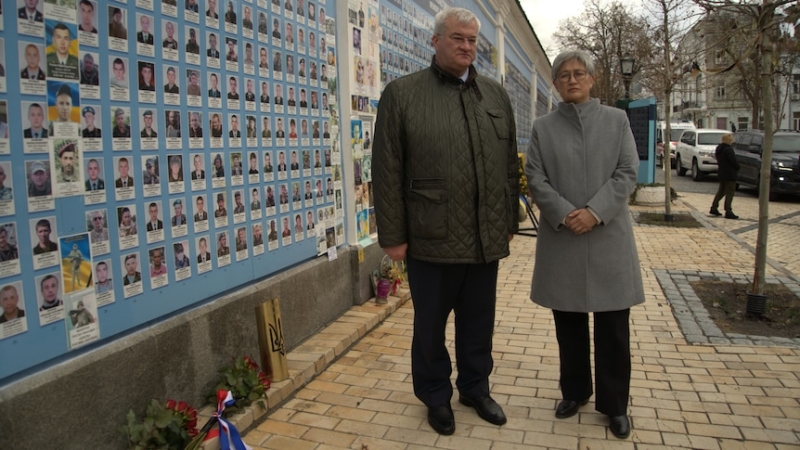
He also refused to say when the government first became aware of the case.
Mr Giles said that Mr Jenkins, however, may have been captured at an almost "favourable time" due to the increased interest on the Russian side in negotiating swap agreements and to start negotiations with the Ukrainian side.
"It appears that Ukraine's incursion into the Kursk region of Russia has actually captured highly valuable Russian individuals they want back," he said.
"In terms of looking for opportunities for making exchanges, this is a good time. As soon as you get these people back, the less they suffer in Russian captivity."
Donald R. Rothwell, professor of international law at ANU College of Law, said that Mr Jenkins would join a larger pool if Russia decides to treat Mr Jenkins as a prisoner of war.
The pool would consist of Ukrainian prisoners of war who "may be transferred for Russian prisoners of war during the conflict or at the end of the war".
"That is not a process Australia would be involved in as it is not a party to the war," he said.
Otherwise, any other form of prisoner swap would have to be done "through political means" which could include Simeon Boikov, Professor Rothwell said.
Known by his online moniker Aussie Cossack, Mr Boikov is an Australian pro-Russian influencer currently holed up in the Russian consulate in Sydney to avoid an arrest warrant.
Reposting the hostage video of Mr Jenkins, Mr Boikov stated that he should be part of a prisoner swap deal.
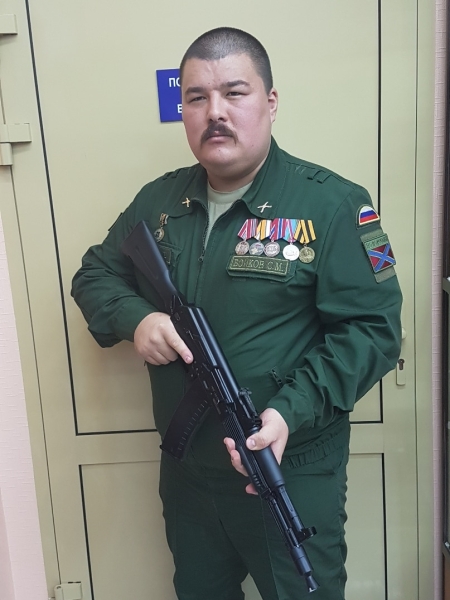
Simeon Boikov stated that Mr Jenkins should be part of a prisoner swap deal. (Supplied)
Mr Giles said that the swap would "solve quite a few problems" if Russia were willing to an exchange of that kind but "is fairly far-fetched" compared to the regular prisoner exchanges seen with Ukraine.
What is the difference between a prisoner of war and a mercenary?
The description of a mercenary is one which Russia routinely applies to foreign fighters who have been captured instead of a prisoner of war — whether or not they meet that category, Mr Giles said.
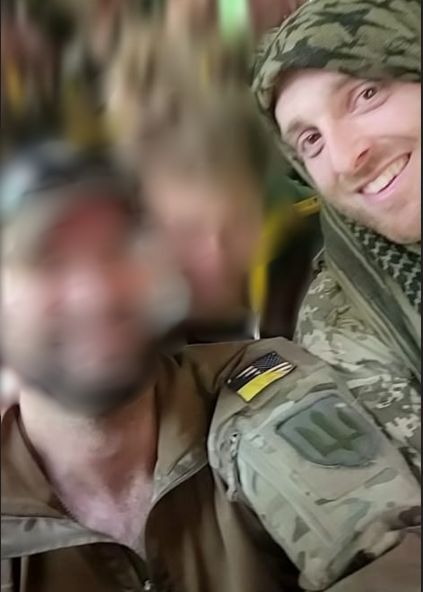
American "Forrest" with Melbourne man Oscar Jenkins. (Supplied)
As such, captured prisoners can be treated as criminals and prosecuted as one.
"Often these people are actually signed up with Ukraine armed forces and are not mercenaries in any recognised sense of the term," Mr Giles said.
"This pretence by Russia that they are [mercenaries] allows them to put them through a sham legal trial and on occasion, sentence them to death."
Professor Rothwell said the main legal issue concerning Mr Jenkins is what Russia chooses to classify him as.
"Prisoner of war status applies to combatants and they enjoy protections under the 1949 Geneva Convention to which both Australia and Russia are parties," he said.
"Alternatively, Mr Jenkins could be classified as a mercenary, and the 1977 Additional Protocol to the Geneva Conventions makes clear that a mercenary shall not have the right to be a combatant or a prisoner of war."
But he says that as Mr Jenkins is a foreign national, admitted to his captor that he was being paid, and was taking part in the hostilities it is "therefore legally significant."
Mr Giles said it was all part of the "threat" that Russia creates and there was "sadly" no way of telling what could happen and at what pace.
"It is all part of the routine, part of the theatre and the fiction that Russia has created about the foreign fighters who are assisting Ukraine out of their own goodwill."
Recent Russian executions
Ukraine's Parliamentary Commissioner for Human Rights says that Russian forces have recently executed five Ukrainian prisoners of war.
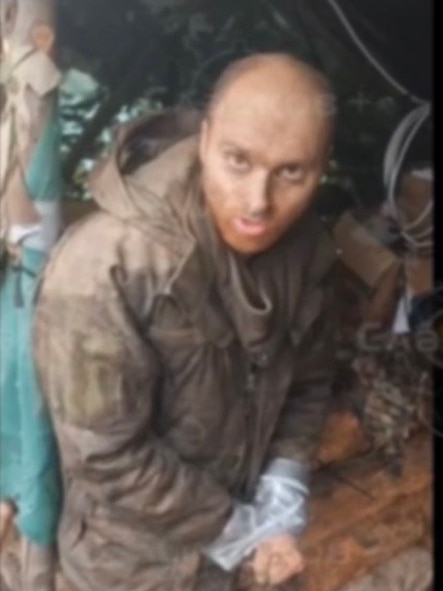
In the video, Mr Jenkins is asked if he is being paid to fight for Ukraine. (Telegram)
Dmytro Lubinets said on the Telegram messenger app on Sunday that Russian troops had shot five unarmed soldiers after capturing them.
Mr Lubinets gave no details, but said he would report the executions to the UN.
"Russian war criminals who shoot Ukrainian prisoners of war should be brought before an international tribunal and punished with the most severe punishment provided for by law," Mr Lubinets wrote.
Russia did not immediately comment on the incident.
They have previously denied committing war crimes.
The Australian government is warning Australians not to travel to Ukraine or join the military efforts against Russia.
ABC

